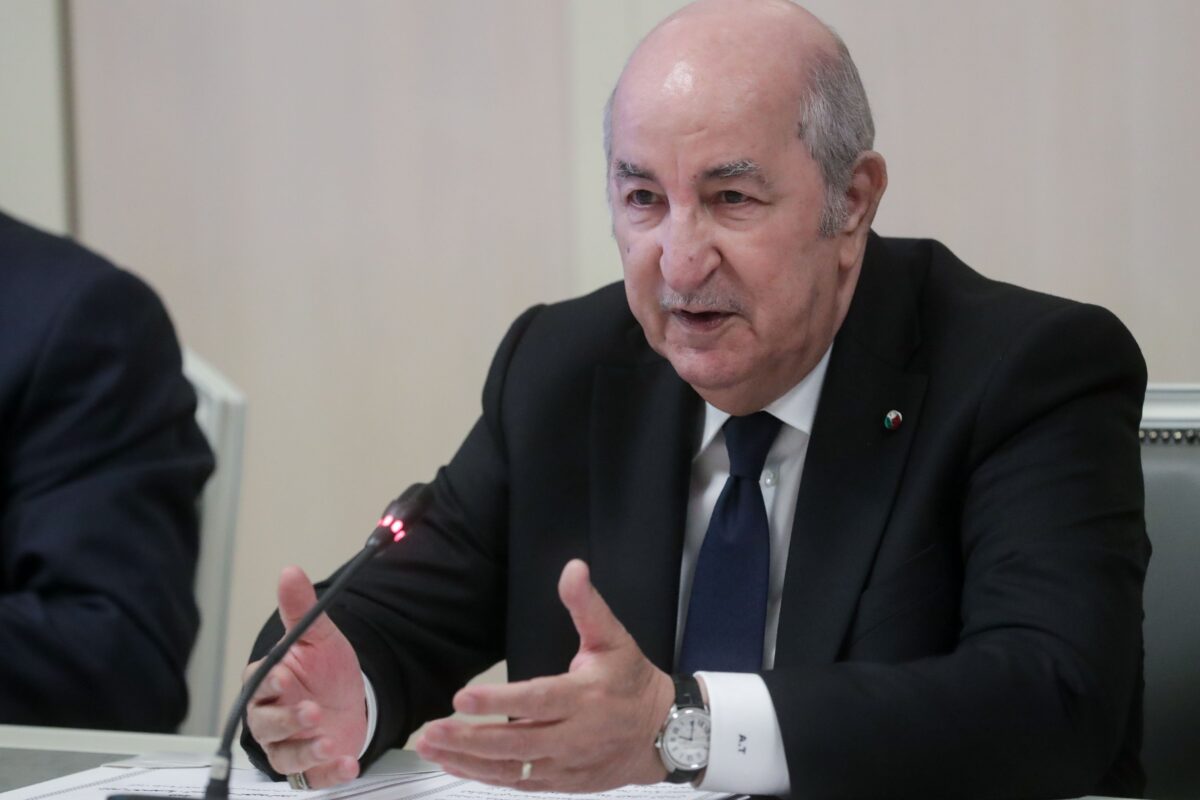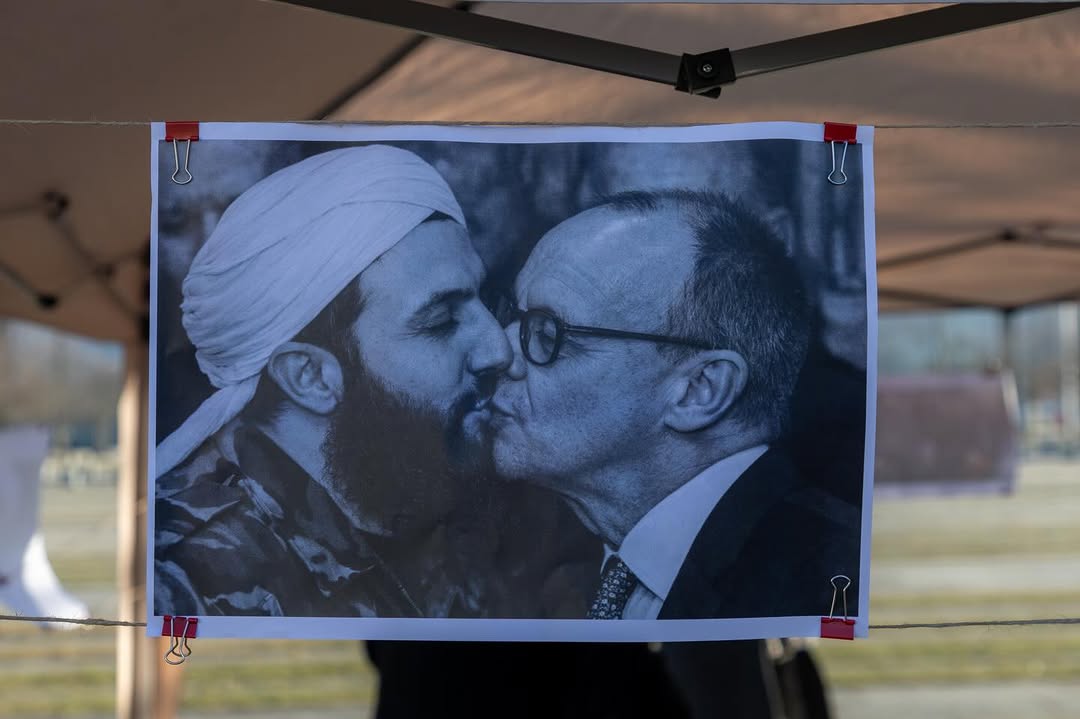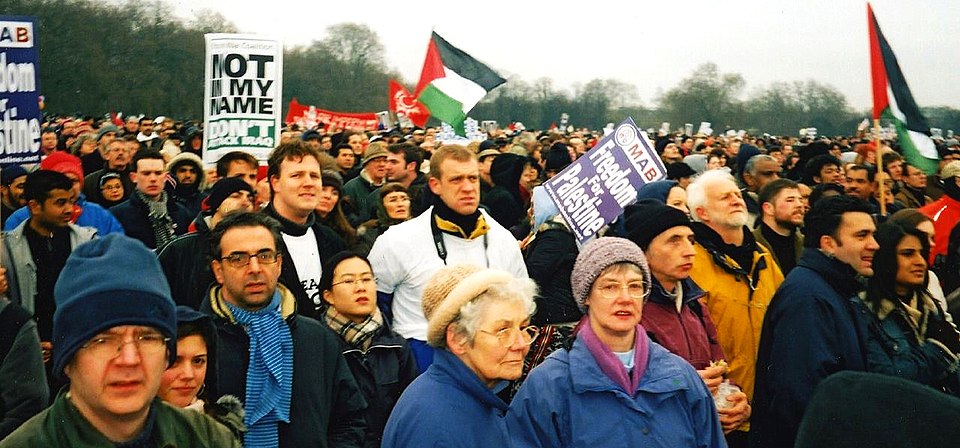“Autopsy of a disillusionment”, a “passionate” or “tumultuous relationship”, “hysteria” — I could continue quoting the countless press articles, headlines and excerpts that describe the ongoing diplomatic escalation between France and Algeria. Interestingly enough, the verbiage that the French press and politicians use, when commenting on the diplomatic relations between France and Algeria, has very often been one of romance, reflecting a lingering Nostalgérie — a portmanteau of nostalgia and Algeria. What historian Benjamin Stora has called the “the worst crisis since independence” is simply the direct, logical consequence of geopolitical shifts, French governmental instability resulting in a clear and strong right-wing shift, and Algerian hypernationalism, bolstered by the authoritarian policies of the current government. This Nostalgérie is intricately connected to the underlying geopolitical dynamics at play, especially concerning how France addresses present tensions.
How has Macron’s recognition of Moroccan sovereignty over Western Sahara ignited never-ending escalation?
Macron’s first presidential mandate had aimed to define a new relationship with Algeria by addressing the horrors of colonialism and working towards a devoir de mémoire, a duty of memory. However, since the summer of 2024, tensions have been rising between the two, following Macron’s decision to break with decades-long official French position on Western Sahara — first by supporting the Moroccan autonomy plan for Western Sahara, and later by unequivocally affirming Morocco’s sovereignty over the disputed territory.
The Moroccan autonomy plan, proposed by the Kingdom in 2007, would deprive the Sahrawi people of their right to self-determination, securing Moroccan sovereignty over the region. In exchange, the Sahrawis would benefit from being granted limited regional autonomy over their already fragmented territory. Algeria, a historical ally of the Sahrawi struggle for independence, have long provided shelter to Sahrawi refugees and offered financial and logistical support to the Sahrawi national liberation front — the Polisario Front — for decades. The Polisario Front have sought self-determination for Western Sahara, mainly through armed struggle. As a response to Macron’s decision, Algeria have withdrawn their ambassador to France, qualifying their decision as “unacceptable”, and one that “only serves to extend the current impasse, and both justifies and bolsters the colonial fait accompli in this territory”
Trying to contextualise the entire conflict around Western Sahara is beyond the scope of this article, but a brief outline goes as follows. Western Sahara has been subjected to various occupations and claims of sovereignty — primarily by Morocco and Mauritania — since the end of the Spanish occupation in 1975. This conflict ended up at the International Court of Justice (ICJ) that same year, resulting in the ICJ rendering an Advisory Opinion addressing questions regarding the status of the land. While acknowledging that there were, “at the time of Spanish colonisation, legal ties of allegiance between the Sultan of Morocco and some of the tribes living in the territory of Western Sahara”, as well as “the existence of rights, including some rights relating to the land, which constituted legal ties between the Mauritanian entity”, the Court did not find “any tie of territorial sovereignty between the territory of Western Sahara and the Kingdom of Morocco or the Mauritanian entity”. The Court also affirmed that there was no reason to deprive the Sahrawi people from the application of the General Assembly’s 1960 resolution 1514 (XV) — especially from the perspective of their right of self-determination.
Despite this legal opinion, both colonisers — Morocco and Mauritania — maintained their presence in the territory, transforming the land into a theatre of armed conflict, including between the Polisario Front and the occupying states. Mauritania withdrew from the territory in 1979 after signing a peace agreement with the Polisario Front, however, the war with Morocco continued, transformed into a low-intensity conflict, until the signing of a very fragile cease-fire in 1991. More recently, tensions have escalated again, following much commercial deal-making and diplomatic bargaining over the territory. Today, Morocco continue to occupy three-quarters of the land, and are on a quest to actively seek international recognition of their sovereignty over it. This question has also been crucial to Morocco’s diplomatic negotiations and strategies — particularly with France, but also with Israel. In 2020, Morocco normalised relations with the Zionist entity, in exchange for Israeli recognition of their sovereignty over the Sahrawi territory. This political maneuver was accompanied by a series of commercial, economic and strategic accords, some concerning the disputed territory. Amidst the ongoing genocide in Gaza, Morocco hosted the opening of a new Israeli drone site in Rabat. Rumours on social media claim that yet another such site is being built, this time on Sahrawi land. All in all, Macron’s declaration affirming the Moroccanness of Western Sahara did not come as a surprise, given the strong economic and commercial ties between Morocco and France, particularly surrounding the exploitation of Western Sahara’s rich natural resources, such as fishery products and phosphates — the latter of which Morocco also happen to be one of the world’s leading producers of, counting (of course) the EU amongst its top customers.
Why is France’s political instability and shift to the far-right necessary to mention?
To gain a clear vision of the dynamics at play in this diplomatic crisis, it is essential to understand France’s internal political chaos. Following the European elections last May, that led to a clear victory for the National Rally (RN), President Macron decided to surprise all 66 million French citizens by dissolving the National Assembly, plunging the country’s institutions into a crisis unprecedented in the history of the Fifth Republic.
Instead of following constitutional practice and appointing a Prime Minister from the leading coalition — the New Popular Front (NFP) — Macron decided to appoint first Michel Barnier, then François Bayrou to the post. Both politicians come from parties that did not have strong results in the elections. This move, rather, was aimed at pleasing the right — mostly the far-right RN — in order to prevent another vote of no confidence that would lead to the government’s implosion.
Amongst these governmental figures, we have the pleasure to count M. Bruno Retailleau as the Minister of the Interior, who has been on a quest to antagonize Algeria, ruining the efforts of the actual Minister for Foreign Affairs, Jean-Noël Barrot, who has been attempting to de-escalate tensions between France and Algeria. This should not be very surprising, given Retailleau’s profile. Retailleau comes from the a very conservative section of French society: anti-migration, anti-abortion, a former advocate against same-sex marriage and — the cherry on top — a fervent glorifier of the French colonisation of Algeria. A true Frenchman, just the way we like them.
Amidst this diplomatic crisis, the minister has been in the media for his campaign to investigate, arrest and deport the Algerian influencers living in France who have been accused of promoting hatred and violence against France on social media. One of them, Boualem Naman, an Algerian citizen who has been living in France for 35 years (with a regular residence permit for the past 15 years) has been hit by a deportation order following statements that he made on social media, calling for the beating up of an Algerian citizen on Algerian soil. Algeria, however, have refused to admit him into their territory, sending him back to France. The Algerian authorities have argued that this deportation violated Naman’s right to defend himself, given that a legal action against him had already begun on French territory. Following this failed deportation, Retailleau has accused Algeria of trying to “humiliate France”. Algeria have responded that they are “not, in any way, engaged in a logic of escalation, provocation or humiliation”, claiming that the purpose of this expulsion was to “provide the nostalgic faction of France an opportunity to settle its scores with a sovereign and independent Algeria”.
Another hard blow for Retailleau was to follow, with the administrative tribunal of Melun later annulling Naman’s deportation order, arguing that the “urgent necessity” of his deportation was unjustified given his situation, and releasing him from detention. On top of this, the tribunal ordered the French State to pay M. Naman €1,200 as compensation for the financial damages. Feel free to laugh — I did too. Perhaps if Interior Minister Retailleau had been better informed about the legal framework and requirements around the deportation process, he could have avoided being humiliated once again, this time by French judges.
Why is Boualem Sansal’s arrest worth mentioning?
As if tensions weren’t already high enough, the arrest of Algerian writer Boualem Sansal by Algerian authorities in November 2024, as soon as he touched down in Algiers International Airport, added fuel to the fire. Sansal was arrested on charges of “undermining the integrity of national territory”. Sansal is also a French citizen, granted citizenship in early 2024 by none other than President Macron himself. France has not suddenly become pro-migration — rather, Sansal`s case symbolises in many ways the strained dynamics between France and Algeria.
I was first introduced to Sansal’s oeuvre when my former French teacher, whose parents were pied-noirs — French settlers in Algeria during the colonial period — gifted me one of his books when I was 15. I remember her giving it to me to show me that colonialism wasn’t “all that bad”, and that it could have saved Algerians from the wave of Islamism that hit in the 90s. This might seem anecdotal, but it encapsulates what Sansal represents to many in France: a Moroccan Algerian man whose work has been catering to the French gaze, with writings and public statements glorifying colonialism, showing support to the Zionist entity, and to the irredentist ideology of Greater Morocco. This is precisely what led to him being arrested by Algerian authorities on the 21st of November, 2024. According to his defence team, he had been arrested specifically for statements he made to a French magazine in which he criticized the current, two century-old border between Algeria and Morocco, claiming that half of Western Algeria belonged and should belong to the Kingdom of Morocco. He also went on to say that the “Algerian regime invented the Polisario Front to destabilize Morocco”. He is currently detained on the charge of “undermining the integrity of national territory”, considered an act of terrorism under Article 87bis of Algeria’s penal code.
To be clear: his arrest, enforced disappearance, and detention for having expressed his views in a magazine should be denounced. Regardless of his politics — which are deeply problematic and factually untrue — this arrest shows, once again, the failure of the Algerian state to uphold and protect the right to the freedom of expression and opinion. The country has a well-documented history of repressing political opponents and critics of the government, as well as human rights defenders, all under the pretext of counterterrorism, precisely by using Article 87bis of the Algerian penal code. Many NGOs have been raising this issue for years now, especially since the peaceful Hirak protests of 2019, when Algerians took to the streets, demanding the departure of Abdelaziz Bouteflika, and for an end to the institutional corruption poisoning the country and its society. Both the Algerian and the French governments have been actively following Sansal’s arrest from up close. For President Macron, who has demanded the writer’s instant release, Algeria “dishonours itself” by detaining him. Algerian diplomacy has since qualified Macron’s statement as an “unacceptable interference in an internal Algerian matter”
In conclusion
At its core, this diplomatic crisis between France and Algeria highlights the lasting scars of colonialism, and the resurgence of a right wing (even far-right) neocolonial ideology — one that has been latent in France in the past decades, but that has slowly been returning to the forefront of the political agenda. Macron’s shift on Western Sahara, driven by economic and strategic interests, shows that he has privileged these interests over those of the Sahrawi people, and over choosing to continue down the path of reconciliation that France had begun with Algeria. Meanwhile, Algeria’s response — which highlights both hyper-nationalistic conviction and an increasingly repressive leadership — illustrates the fragility of the rule of law in the country. Ultimately, the stakes with this escalation extend far beyond endless press statements and provocations, to the very balance of power in North Africa between Algeria and Morocco: two countries that continue to let neocolonialism and imperialism divide them, all at the cost of a potentially united North African front.




